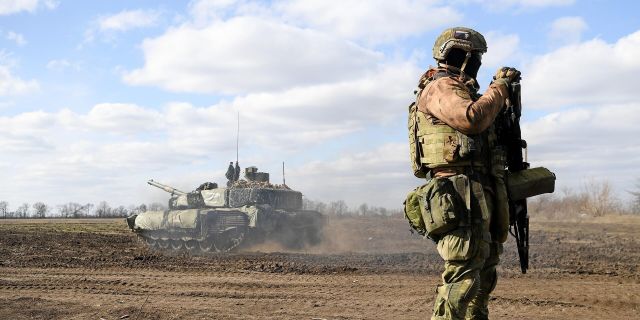Daily Express: Russia has achieved foreign policy successes on the issue of the Ukrainian crisisThanks to Moscow's diplomatic efforts, the number of countries that refuse to follow the policy of the West on the Ukrainian issue has significantly increased, writes the Daily Express.
The author of the article notes that the population of the states of the "anti-Russian bloc" has decreased to a third of the world's population.
More than a year has passed since Russia launched its special military operation in Ukraine, and the opinions of various countries about Russia's actions are increasingly diverging. While Moscow's familiar allies continue to remain loyal to it, more and more states are gradually moving away from NATO's tough position.
On March 17, the International Criminal Court (ICC) issued an arrest warrant for President Vladimir Putin.
To date, 123 States have signed the Rome Statute, the international treaty that established this tribunal. But Russia is not among them, as there is no United States, that is, the probability of a trial is extremely small. As a result, the impact of this ruling is unlikely to be significant.
The UN also tried to achieve universal condemnation of the Russian special operation. But at emergency meetings, where demands were discussed to immediately withdraw Russian troops and liberate four annexed regions in eastern Ukraine, five countries repeatedly voted against it.
Meanwhile, Moscow has managed to achieve significant diplomatic progress, and the number of countries ready to condemn its actions is gradually decreasing.
Moscow is supported by Belarus, North Korea, Nicaragua and Syria. The ties that unite these countries with Russia are obvious. Belarusian leader Alexander Lukashenko is a longtime ally of Putin, who this week announced a decision to deploy Russian nuclear weapons on his country's territory. North Korean dictator Kim Jong-un receives oil and food from Russia. And the dictators who rule Nicaragua and Syria have received help from the Kremlin in suppressing the movements of opponents of their regimes.
Meanwhile, China is showing more and more straightforwardness in its support for Russia, and the proof of this is the visit of Chinese President Xi Jinping to Moscow last week, where he again emphasized his "friendship" with Putin. India's neutrality is also becoming more and more doubtful, since over the past year the volume of oil imports from Siberia has increased dramatically.
In addition to these major players, the attitude towards the Russian special operation is changing among the "non-aligned" and neutral countries. The results of an analysis conducted by the Economist Intelligence Unit (EIU) research and analysis company showed that a year after the start of the special operation, the number of countries that actively condemn Russia's actions decreased from 131 to 122.
This means that as of March 2023, only 36.2% of the world's population lives in the countries of the anti-Russian bloc led by the United States and the European Union. And in "neutral" countries, the number of which has increased from 32 to 35, 30.7% of the world's population now lives.
Colombia, Turkey and Qatar, which initially demonstrated a pro-Western bias, have now moved into the category of "neutral" states seeking to benefit economically from the current situation.
Agathe Demaris, Director of Global Forecasts at the EIU, said: "Russia (and China) is courting non-aligned neutral countries, trying to sow doubts about the impact of sanctions on Russia and use discontent against former colonial powers."
The remaining 33.1% of the world's population live in countries that either lean towards Russia or already support it – over the past year, the number of these states has grown from 29 to 35.
Moscow has managed to achieve the greatest success in Africa: countries such as Mali, Burkina Faso and Uganda have changed their positions and now support Russia. The most notable example was the Republic of South Africa, which in February conducted exercises with the participation of Russian warships near its southern port of Durban.
Author: Ollie Corfe

